Genomics
Institute
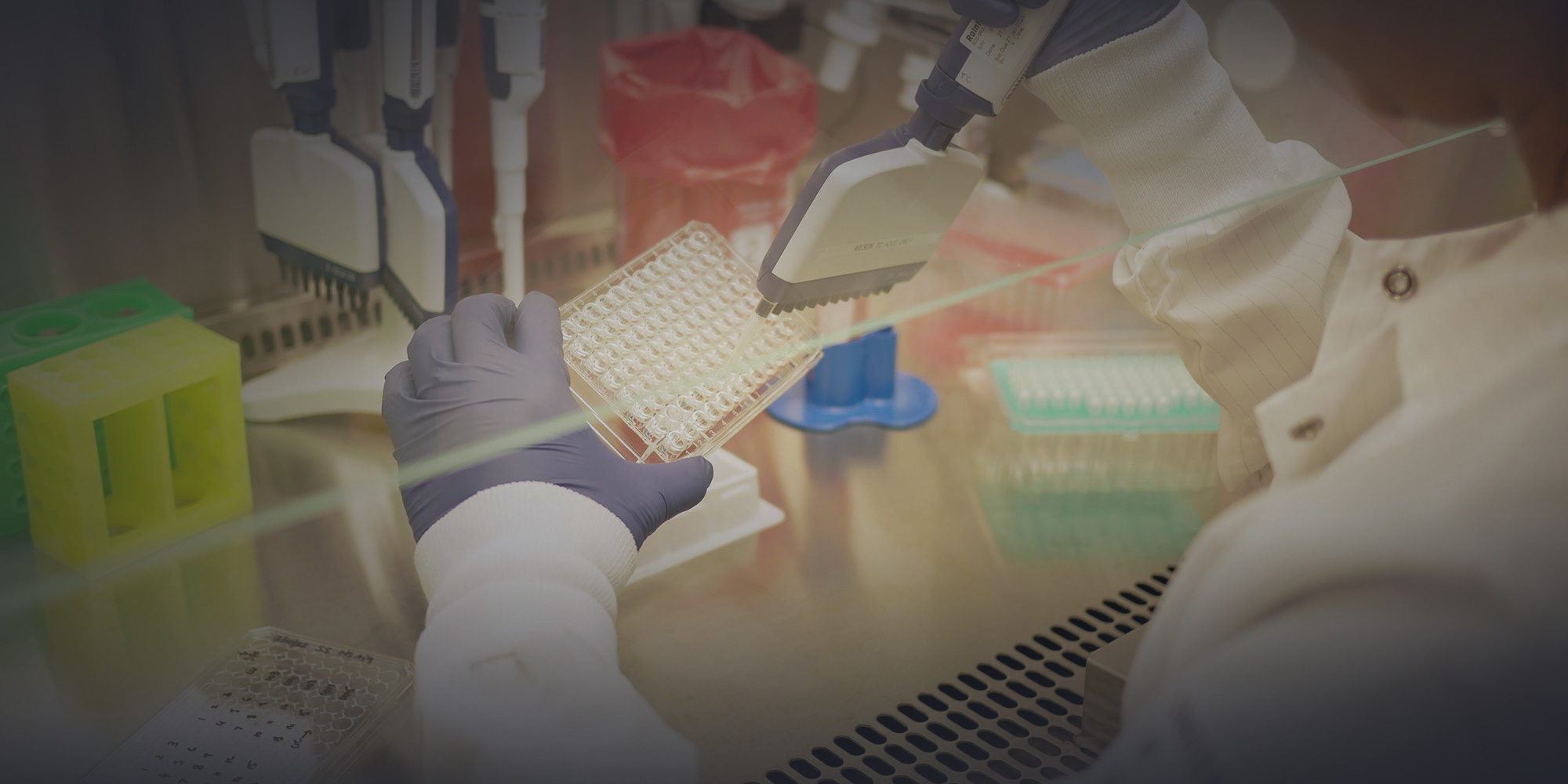
Center for CRISPR Target Discovery
An ATP and IGI Functional Genomics Collaboration
The Innovative Genomics Institute (IGI) and Apple Tree Partners (ATP) have partnered to create the new Center for CRISPR Target Discovery (CCTD) at the IGI Building at UC Berkeley. Through the CCTD, scientists receive generous funding and access to IGI laboratory facilities to advance projects of 1–2 years’ duration aimed at accelerating the treatment and prevention of human disease through interrogation and validation of novel drug targets.
Overview
The Center for CRISPR Target Discovery is a state-of-the-art functional genomics laboratory created by IGI and the life sciences venture capital firm Apple Tree Partners (ATP) to use the power of CRISPR-based technologies to accelerate the exploration and validation of new biological targets that can be translated into novel therapeutics to answer unmet needs.
In the fall of 2021, a request for proposals was extended to members of the UC Berkeley and UC San Francisco research communities who have an interest in using CRISPR-based functional genomics for disease-related genetic target discovery and validation, along with an intent to found a company based on project outcomes or a willingness to collaborate with ATP in their efforts to found a new commercial entity to develop these discoveries.
2023 CCTD Grant Recipients
The IGI and ATP thank all 2022 applicants for their interest in the Center for CRISPR Target Discovery. After a rigorous evaluation process, the following individuals have received funding for research projects:
Joe DeRisi, Ph.D.
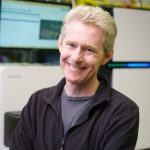 Joe DeRisi is a Professor of Biochemistry and Biophysics at the University of California, San Francisco and President of the Chan Zuckerberg Biohub. DeRisi is an interdisciplinary scientist whose work combines genomics, bioinformatics, biochemistry, and bioengineering to study autoimmune, parasitic, and viral diseases in a wide range of organisms. He received a B.A. in Biochemistry and Molecular Biology from the University of California, Santa Cruz and a Ph.D. in Biochemistry from Stanford University.
Joe DeRisi is a Professor of Biochemistry and Biophysics at the University of California, San Francisco and President of the Chan Zuckerberg Biohub. DeRisi is an interdisciplinary scientist whose work combines genomics, bioinformatics, biochemistry, and bioengineering to study autoimmune, parasitic, and viral diseases in a wide range of organisms. He received a B.A. in Biochemistry and Molecular Biology from the University of California, Santa Cruz and a Ph.D. in Biochemistry from Stanford University.
Samantha Lewis, Ph.D.
 Samantha Lewis is a molecular and cell biologist and Assistant Professor at the University of California, Berkeley. Her research investigates how animal cells ensure the continual energy supply they need to survive, and how this goes awry in human disease. Her laboratory team focuses on mitochondria, the “powerhouse of the cell”, which harbor their own genomic blueprint called mitochondrial DNA. Lewis’ experimental approach leverages live microscopy at high spatial and temporal resolution, single cell analyses of DNA replication and transcription, gene editing, proteomics, and genetics to reveal how cells replicate, segregate, and inherit this “neglected genome.” Lewis earned her B.S. from Oregon State University and Ph.D. from the University of California, Riverside.
Samantha Lewis is a molecular and cell biologist and Assistant Professor at the University of California, Berkeley. Her research investigates how animal cells ensure the continual energy supply they need to survive, and how this goes awry in human disease. Her laboratory team focuses on mitochondria, the “powerhouse of the cell”, which harbor their own genomic blueprint called mitochondrial DNA. Lewis’ experimental approach leverages live microscopy at high spatial and temporal resolution, single cell analyses of DNA replication and transcription, gene editing, proteomics, and genetics to reveal how cells replicate, segregate, and inherit this “neglected genome.” Lewis earned her B.S. from Oregon State University and Ph.D. from the University of California, Riverside.
Davide Ruggero, Ph.D.
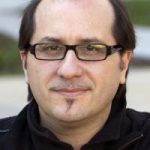
Davide Ruggero is a Professor in the Department of Urology and of Cellular & Molecular Pharmacology at the University of California, San Francisco (UCSF). He also holds the Helen Diller Family Endowed Chair of Basic Cancer Research at UCSF. Dr. Ruggero joined UCSF in July 2007 from the Fox Chase Cancer Center in Philadelphia where he was an Assistant Professor in the Department of Human Genetics. He received full professorship in 2013. His research expands the traditional lines of investigation into cancer biology, and has uncovered a novel layer of control to gene regulation for cancer. Dr. Ruggero is a recipient of multiple awards and honors for his outstanding research in cancer biology.
Robert Saxton, Ph.D.
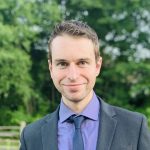 Robert Saxton is an Assistant Professor of Immunology and Molecular Medicine and Chemistry at the University of California, Berkeley. The Saxton Lab studies the mechanisms of cell communication that control tissue inflammation, repair, and homeostasis, with the goal of developing novel therapeutics to modulate these pathways in disease. Their multidisciplinary research program uses a range of biochemical and structural biology techniques, together with cutting edge approaches in protein engineering, receptor pharmacology, and mouse models of inflammation in order to understand and control inflammatory signaling at the atomic, cellular, and organismal levels. Dr. Saxton received his B.A. from the University of California, Berkeley, and his Ph.D. from the Massachusetts Institute of Technology.
Robert Saxton is an Assistant Professor of Immunology and Molecular Medicine and Chemistry at the University of California, Berkeley. The Saxton Lab studies the mechanisms of cell communication that control tissue inflammation, repair, and homeostasis, with the goal of developing novel therapeutics to modulate these pathways in disease. Their multidisciplinary research program uses a range of biochemical and structural biology techniques, together with cutting edge approaches in protein engineering, receptor pharmacology, and mouse models of inflammation in order to understand and control inflammatory signaling at the atomic, cellular, and organismal levels. Dr. Saxton received his B.A. from the University of California, Berkeley, and his Ph.D. from the Massachusetts Institute of Technology.
Jack Taunton, Ph.D.
 Jack Taunton is a Professor of Cellular Molecular Pharmacology and a member of the Cancer Center Program at the University of California, San Francisco. His laboratory develops chemical and biochemical tools to illuminate cellular processes relevant to cancer and autoimmune disease. His research lab is a collaborative chemical biology group with scientific interests that are diverse and include covalent inhibitor design, chemoproteomic methods, natural products, and proteostasis mechanisms.
Jack Taunton is a Professor of Cellular Molecular Pharmacology and a member of the Cancer Center Program at the University of California, San Francisco. His laboratory develops chemical and biochemical tools to illuminate cellular processes relevant to cancer and autoimmune disease. His research lab is a collaborative chemical biology group with scientific interests that are diverse and include covalent inhibitor design, chemoproteomic methods, natural products, and proteostasis mechanisms.
Dean Toste, Ph.D., and Christopher Chang, Ph.D.
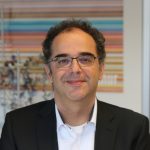 Dean Toste is the Gerald E. K. Branch Distinguished Professor of Chemistry at the University of California, Berkeley. He is recognized for his work developing and studying catalysts and catalytic reactions. He is known particularly for his pioneering works in homogeneous gold catalysis and chiral anion catalysis, and more generally, for his mechanistically guided approach to reaction discovery. Toste was born in Azores, Portugal and grew up in Toronto, Canada. He graduated from University of Toronto with a degree in Chemistry and Biochemistry and earned his Ph.D. from Stanford University. He is an elected fellow of the Royal Society of Canada, Academy of Sciences, the American Academy of Arts and Sciences and a member of the National Academy of Sciences.
Dean Toste is the Gerald E. K. Branch Distinguished Professor of Chemistry at the University of California, Berkeley. He is recognized for his work developing and studying catalysts and catalytic reactions. He is known particularly for his pioneering works in homogeneous gold catalysis and chiral anion catalysis, and more generally, for his mechanistically guided approach to reaction discovery. Toste was born in Azores, Portugal and grew up in Toronto, Canada. He graduated from University of Toronto with a degree in Chemistry and Biochemistry and earned his Ph.D. from Stanford University. He is an elected fellow of the Royal Society of Canada, Academy of Sciences, the American Academy of Arts and Sciences and a member of the National Academy of Sciences.
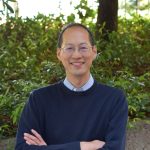 Christopher Chang is Professor of Chemistry, Professor of Molecular and Cell Biology, member of the Helen Wills Neuroscience Institute at the University of California, Berkeley, and Adjunct Professor at the University of California, San Francisco. The Chang Lab studies the chemistry of biology and energy. They advance new concepts in imaging, proteomics, drug discovery, and catalysis by drawing from core disciplines of inorganic, organic, and biological chemistry. Chang earned his B.S. and M.S. in Chemistry at the California Institute of Technology and his Ph.D. at the Massachusetts Institute of Technology.
Christopher Chang is Professor of Chemistry, Professor of Molecular and Cell Biology, member of the Helen Wills Neuroscience Institute at the University of California, Berkeley, and Adjunct Professor at the University of California, San Francisco. The Chang Lab studies the chemistry of biology and energy. They advance new concepts in imaging, proteomics, drug discovery, and catalysis by drawing from core disciplines of inorganic, organic, and biological chemistry. Chang earned his B.S. and M.S. in Chemistry at the California Institute of Technology and his Ph.D. at the Massachusetts Institute of Technology.
2022 CCTD Grant Recipients
Daniel K. Nomura, Ph.D.
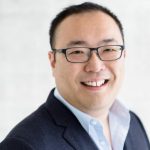 Dan Nomura is a Professor of Chemical Biology in the Departments of Chemistry, Molecular and Cell Biology, and Nutritional Sciences and Toxicology at the University of California, Berkeley and an Adjunct Professor in the Department of Pharmaceutical Chemistry at UCSF. Since 2017, he has also been the Director of the Novartis-Berkeley Center for Proteomics and Chemistry Technologies focused on using chemoproteomic platforms to tackle the undruggable proteome. He is also co-founder and head of the Scientific Advisory Board of Frontier Medicines and serves on the scientific advisory committee of the Mark Foundation for Cancer Research. Nomura earned his B.A. in Molecular and Cell Biology and Ph.D. in Molecular Toxicology at UC Berkeley with Professor John Casida and was a postdoctoral fellow at Scripps Research with Professor Ben Cravatt before returning to Berkeley as a faculty member in 2011. Among his honors are his selection as a Searle Scholar, American Cancer Society Research Scholar Award, the Department of Defense Breakthroughs Award, Eicosanoid Research Foundation Young Investigator Award, and the Mark Foundation for Cancer Research ASPIRE award.
Dan Nomura is a Professor of Chemical Biology in the Departments of Chemistry, Molecular and Cell Biology, and Nutritional Sciences and Toxicology at the University of California, Berkeley and an Adjunct Professor in the Department of Pharmaceutical Chemistry at UCSF. Since 2017, he has also been the Director of the Novartis-Berkeley Center for Proteomics and Chemistry Technologies focused on using chemoproteomic platforms to tackle the undruggable proteome. He is also co-founder and head of the Scientific Advisory Board of Frontier Medicines and serves on the scientific advisory committee of the Mark Foundation for Cancer Research. Nomura earned his B.A. in Molecular and Cell Biology and Ph.D. in Molecular Toxicology at UC Berkeley with Professor John Casida and was a postdoctoral fellow at Scripps Research with Professor Ben Cravatt before returning to Berkeley as a faculty member in 2011. Among his honors are his selection as a Searle Scholar, American Cancer Society Research Scholar Award, the Department of Defense Breakthroughs Award, Eicosanoid Research Foundation Young Investigator Award, and the Mark Foundation for Cancer Research ASPIRE award.
The Nomura Research Group at UC Berkeley is focused on reimagining druggability using chemoproteomic platforms to develop transformative medicines.
James Olzmann, Ph.D.
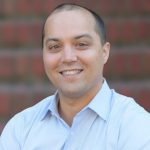 James Olzmann is an Associate Professor of Molecular and Cell Biology and Nutritional Sciences and Toxicology at the University of California, Berkeley, and an investigator at the Chan Zuckerberg Biohub. His research group studies the cell biology of lipid homeostasis and its relevance to human diseases, including metabolic diseases and cancer. A University of Michigan biology undergrad, Olzmann went on to earn his Ph.D. in neuroscience at Emory University. As a postdoctoral fellow in biology at Stanford University he discovered a connection between endoplasmic reticulum protein quality control and lipid droplets—cellular hubs of lipid metabolism that supply fatty acids that can be employed for energy, membrane biogenesis, and lipid signaling pathways. This discovery led Olzmann to deepen his focus on the biology of lipid droplets and the mechanisms that cells employ to prevent lipotoxicity. Some of his honors include the Presidential Early Career Award for Scientists and Engineers (PECASE), Günter Blobel Early Career Award from the American Society for Cell Biology, Miller Institute Professorship Award, and American Cancer Society Research Scholar Award.
James Olzmann is an Associate Professor of Molecular and Cell Biology and Nutritional Sciences and Toxicology at the University of California, Berkeley, and an investigator at the Chan Zuckerberg Biohub. His research group studies the cell biology of lipid homeostasis and its relevance to human diseases, including metabolic diseases and cancer. A University of Michigan biology undergrad, Olzmann went on to earn his Ph.D. in neuroscience at Emory University. As a postdoctoral fellow in biology at Stanford University he discovered a connection between endoplasmic reticulum protein quality control and lipid droplets—cellular hubs of lipid metabolism that supply fatty acids that can be employed for energy, membrane biogenesis, and lipid signaling pathways. This discovery led Olzmann to deepen his focus on the biology of lipid droplets and the mechanisms that cells employ to prevent lipotoxicity. Some of his honors include the Presidential Early Career Award for Scientists and Engineers (PECASE), Günter Blobel Early Career Award from the American Society for Cell Biology, Miller Institute Professorship Award, and American Cancer Society Research Scholar Award.
Current efforts in the Olzmann Lab integrate systems level, chemical biology, and cell biology strategies to understand the regulation of lipid droplets and the mechanisms that suppress lipid damage during a regulated cell death pathway known as ferroptosis.
David Raulet, Ph.D.
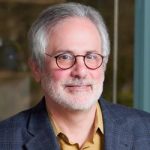 David Raulet is an immunologist and cancer researcher who focuses on the role of cytotoxic lymphocytes, including NK cells and T cells, in destroying tumor cells. He is known for defining mechanisms of cancer cell recognition by NK cells; how MHC and MHC-like molecules determine NK cell inhibition, activation, and education; intrinsic T cell recognition of MHC molecules; and regulated TCR gene rearrangement. Raulet graduated from the University of Michigan with a degree in Microbiology, and from MIT with a Ph.D. in Biology. He was a postdoctoral fellow in the Department of Pathology at the University of Pennsylvania School of Medicine. He joined the faculty in the Department of Biology at MIT and subsequently moved to the Department of Molecular and Cell Biology at the University of California, Berkeley. He is a member of the National Academy of Sciences.
David Raulet is an immunologist and cancer researcher who focuses on the role of cytotoxic lymphocytes, including NK cells and T cells, in destroying tumor cells. He is known for defining mechanisms of cancer cell recognition by NK cells; how MHC and MHC-like molecules determine NK cell inhibition, activation, and education; intrinsic T cell recognition of MHC molecules; and regulated TCR gene rearrangement. Raulet graduated from the University of Michigan with a degree in Microbiology, and from MIT with a Ph.D. in Biology. He was a postdoctoral fellow in the Department of Pathology at the University of Pennsylvania School of Medicine. He joined the faculty in the Department of Biology at MIT and subsequently moved to the Department of Molecular and Cell Biology at the University of California, Berkeley. He is a member of the National Academy of Sciences.
The Raulet Laboratory investigates mechanisms by which natural killer cells and T cells recognize cancer cells and infected cells, and by which tumors and infectious agents naturally activate or inhibit productive responses by cytotoxic cells, or desensitize the cells by inducing anergy. The aim of this research is to apply its findings to improve existing immunotherapies for cancer and design new ones.
Lani Wu, Ph.D., and Steven Altschuler, Ph.D.
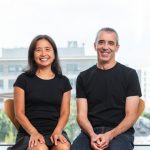 Lani Wu and Steve Altschuler are Professors in the Department of Pharmaceutical Chemistry at the University of California, San Francisco (UCSF). Together, they have developed a research program that combines experimental biology, data sciences, and modeling to attack fundamental problems in cell biology and drug discovery. The couple took a nonlinear path to biology, with research careers starting in mathematics at the interface of analysis and geometry. They transitioned to engineering at Microsoft, where they co-led an invention team that developed machine learning approaches for improving human-computer interactions, including in the areas of computer vision, social networking, and noisy speech recognition. They entered systems biology and pharmacology by way of the biotech startup Rosetta Inpharmatics. Wu and Altschuler have been pioneering members of the Harvard University Bauer Fellow program and the Green Center for Systems Biology at UTSW and have served as visiting faculty at MSRI in Berkeley and Google Brain. They are co-founders of ATP portfolio company Nine Square Therapeutics.
Lani Wu and Steve Altschuler are Professors in the Department of Pharmaceutical Chemistry at the University of California, San Francisco (UCSF). Together, they have developed a research program that combines experimental biology, data sciences, and modeling to attack fundamental problems in cell biology and drug discovery. The couple took a nonlinear path to biology, with research careers starting in mathematics at the interface of analysis and geometry. They transitioned to engineering at Microsoft, where they co-led an invention team that developed machine learning approaches for improving human-computer interactions, including in the areas of computer vision, social networking, and noisy speech recognition. They entered systems biology and pharmacology by way of the biotech startup Rosetta Inpharmatics. Wu and Altschuler have been pioneering members of the Harvard University Bauer Fellow program and the Green Center for Systems Biology at UTSW and have served as visiting faculty at MSRI in Berkeley and Google Brain. They are co-founders of ATP portfolio company Nine Square Therapeutics.
The Altschuler and Wu Labs at UCSF tackle systems-level questions in biology, disease, and pharmacology.
Andrew Yang, Ph.D.
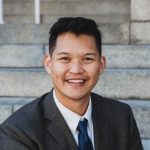 Andrew Yang is a Sandler Faculty Fellow at the University of California, San Francisco (UCSF) in the Bakar Aging Research Institute and Department of Anatomy. His lab develops new molecular approaches to decode protein and immune cell communication at the critical interface where the brain meets the body. Understanding the mechanisms, meaning, and therapeutic relevance of these messages will inform new avenues to improve drug delivery and enhance resilience against neurodegenerative disease.
Andrew Yang is a Sandler Faculty Fellow at the University of California, San Francisco (UCSF) in the Bakar Aging Research Institute and Department of Anatomy. His lab develops new molecular approaches to decode protein and immune cell communication at the critical interface where the brain meets the body. Understanding the mechanisms, meaning, and therapeutic relevance of these messages will inform new avenues to improve drug delivery and enhance resilience against neurodegenerative disease.
Martin Kampmann
 Martin Kampmann is an Associate Professor in the UCSF Department of Biochemistry and Biophysics and the Institute for Neurodegenerative Diseases. He received his BA in Biochemistry from Cambridge University and his Ph.D. in Biophysics/Cell Biology from Rockefeller University. He co-invented the CRISPRi and CRISPRa screening technologies, and his lab has pioneered CRISPR-based screens in human brain cell types such as neurons, microglia and astrocytes. He leverages this unique technology to uncover mechanisms and new therapeutic strategies for Alzheimer’s Disease and other neurodegenerative diseases. Kampmann was named an NIH Director’s New Innovator, an Allen Distinguished Investigator, a Chan Zuckerberg Initiative Ben Barres Early Career Acceleration Award, and he received the Rainwater Prize for Innovative Early Career Scientists.
Martin Kampmann is an Associate Professor in the UCSF Department of Biochemistry and Biophysics and the Institute for Neurodegenerative Diseases. He received his BA in Biochemistry from Cambridge University and his Ph.D. in Biophysics/Cell Biology from Rockefeller University. He co-invented the CRISPRi and CRISPRa screening technologies, and his lab has pioneered CRISPR-based screens in human brain cell types such as neurons, microglia and astrocytes. He leverages this unique technology to uncover mechanisms and new therapeutic strategies for Alzheimer’s Disease and other neurodegenerative diseases. Kampmann was named an NIH Director’s New Innovator, an Allen Distinguished Investigator, a Chan Zuckerberg Initiative Ben Barres Early Career Acceleration Award, and he received the Rainwater Prize for Innovative Early Career Scientists.
Director of the Center for CRISPR Target Discovery
Before joining the IGI in 2020, Refermat worked at the Memorial Sloan Kettering Cancer Center on various CRISPR cell-line engineering and CRISPR library construction projects. Specifically, Alice spearheaded the effort to clone a barcoded CRISPR library for the “druggable” genome with the aim of tailoring drug target discovery in patient-derived PDX models. With a team of research specialists, she completed several whole-genome CRISPR screens to find novel gene targets that indicate drug sensitivity in lymphoma cell lines. |
Apply
Click below to learn more about the award and the CCTD program.
Questions?
Please email Zilose Lyons at zilose@berkeley.edu.
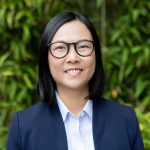 Alice Refermat, Ph.D. serves as Director of the Center for CRISPR Target Discovery at the IGI with the goal of accelerating the treatment and prevention of human disease through interrogation and validation of novel drug targets.
Alice Refermat, Ph.D. serves as Director of the Center for CRISPR Target Discovery at the IGI with the goal of accelerating the treatment and prevention of human disease through interrogation and validation of novel drug targets.